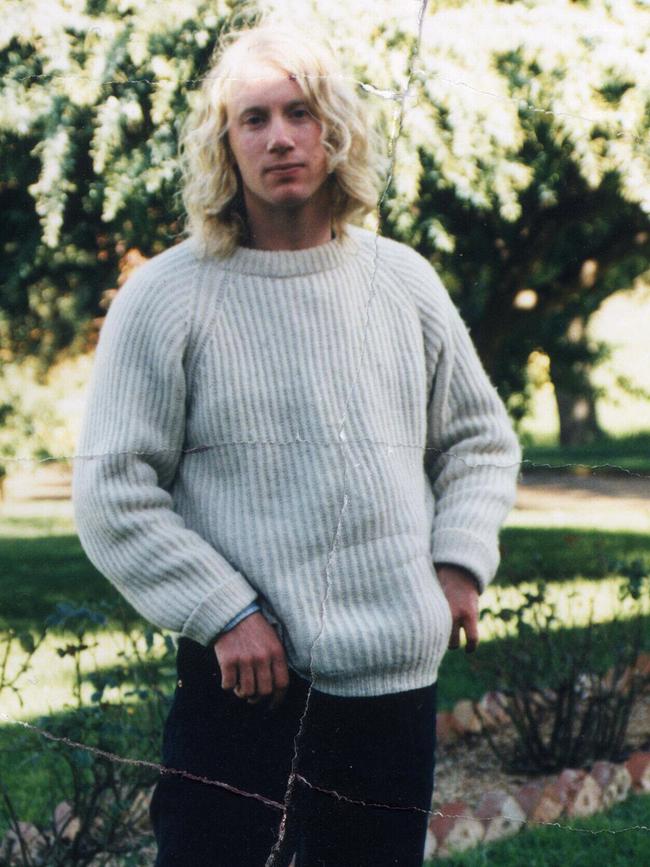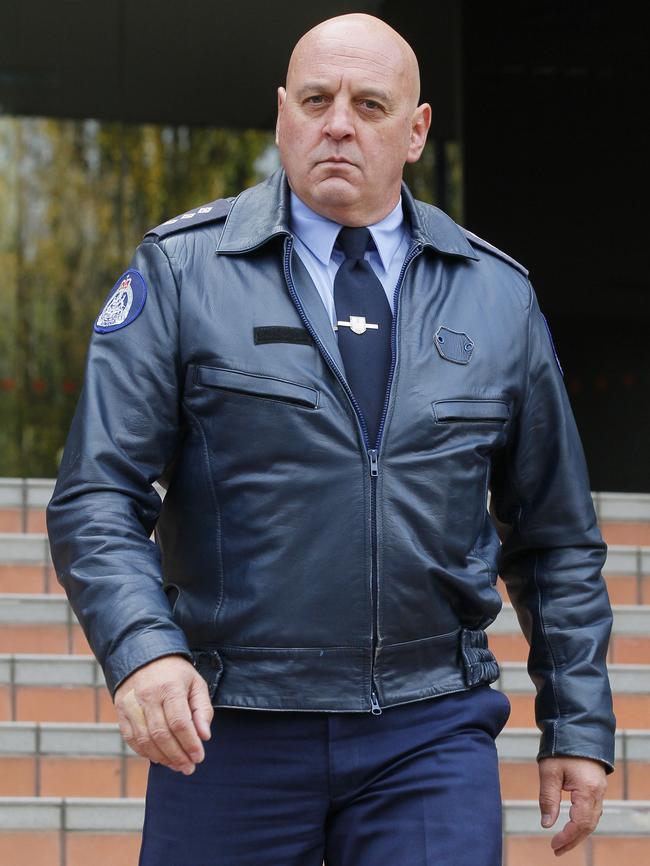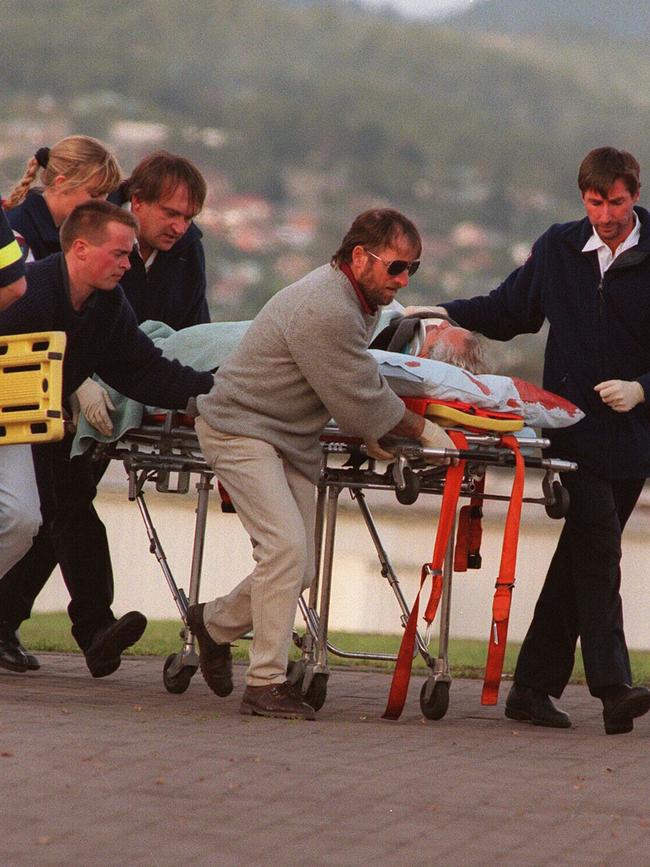On Guard podcast: Martin Bryant is a ‘big baby’ and a ‘nobody’ in prison, says former prison officer
A prison officer who worked with Martin Bryant has revealed the serial killer is just a “big baby” and a nobody within the jail hierarchy. WARNING: Graphic
True Crime
Don't miss out on the headlines from True Crime. Followed categories will be added to My News.
The man responsible for the largest mass murder in Australia’s living memory is now a non-verbal “nobody”, so inconsequential in the prison hierarchy many inmates don’t even know his name.
In 1996, Martin Bryant made international headlines as the gunman behind the Port Arthur massacre, a one-man shooting spree which began at the popular Tasmanian tourist destination, and finished with 35 dead and 23 injured.

The tragedy was so great, Australia’s gun laws were sensationally overhauled as a result, with Prime Minister John Howard directing the destruction of more than a million firearms.
One may assume the perpetrator of such a historically significant crime would hold a reputation of equal notoriety in prison, but according to former prison supervisor, Tony Burley, the once feared massacrist is now just “a joke” among fellow inmates.
“He doesn’t rate a mention, he’s just another blip on the radar which surprises a lot of people,” Burley, 63, who spent more than two decades working in Tasmania’s prison service, and a decade overseeing Bryant, told the On Guard podcast.
Listen to the new episode of the On Guard podcast below
“In the unit he was last known to be housed in by himself, the Mersey unit, there may be prisoners in that unit that who wouldn’t even know who he was …
“He’s not feared. Probably laughed at more than anything.”
The “high dependency maximum security unit” is designed for prisoners who “need a little more love, a bit of TLC”, explains a tongue-in-cheek, Burley, before exclaiming, “he’s just a big baby!”
“He doesn’t communicate. I probably had about half a dozen words with him in a 10 year period,” he adds.

While Bryant was 28 when he committed the massacre, he is now an overweight 53-year-old, barely recognisable from the long-haired smiling youth many remember from news reports of the time.
He has been assessed by a number of forensic psychiatrists and psychologists since his incarceration, who have diagnosed him with Asperger’s syndrome, social and intellectual impairment, and classified him as borderline mentally disabled, with an I.Q. of 66, equivalent to an 11-year-old girl.
Burley also states it is “common knowledge” among prison staff that Bryant would perform sexual acts on other prisoners in exchange for confectionary.
“He has a love of chocolate and to get extra chocolate, he had to do certain favours.
And those favours were of a sexual nature to other prisoners who were being housed at the old Risdon Prison Hospital,” Burley said.
“When he first went into custody, he was held at the Risdon Prison Hospital because of his injuries. And officers at that stage had to be with him 24/7 because he was laid out and had to be rotated, like a pig on a spit.
“Which is a really bad thing to say but because of the burns he had to be rotated and have somebody there all the time.”

Bryant suffered burns across his back and buttocks when, at the conclusion of his massacre, he set fire to a guesthouse after an 18-hour police siege in which he killed his hostage, before being apprehended.
Although Bryant had committed assaults on staff while incarcerated, Burley said he never found him threatening.
As a former member of the Tactical Response Group, Burley was specially trained to encounter violent prison unrest, such as when riots broke out.
When other staff lose control to prisoners, it’s Burley who enters, dressed in full-body armour and armed with chemical agent and tasers to restore order.
“There might be doors smashed in, people walking around armed with anything they can get their hands on, pots of boiling water, just anything they can use as a weapon,” he said.
“There are dangerous prisoners but there are also dangerous criminals who aren’t dangerous prisoners. You could have a hit man – and Tasmania’s had one or two of those – and they come into prison and be the nicest bloke you can come across,” Burley said.
Some readers may find the content of this story distressing or triggering. If you need help, please call Lifeline on 13 11 14.
Catch up on more episodes of On Guard below:


